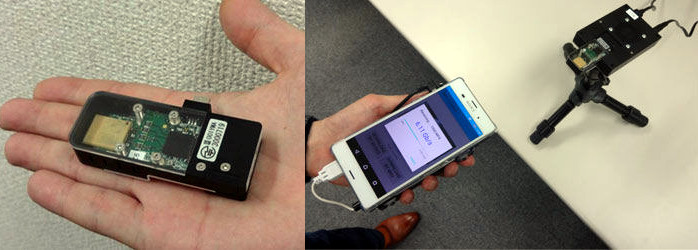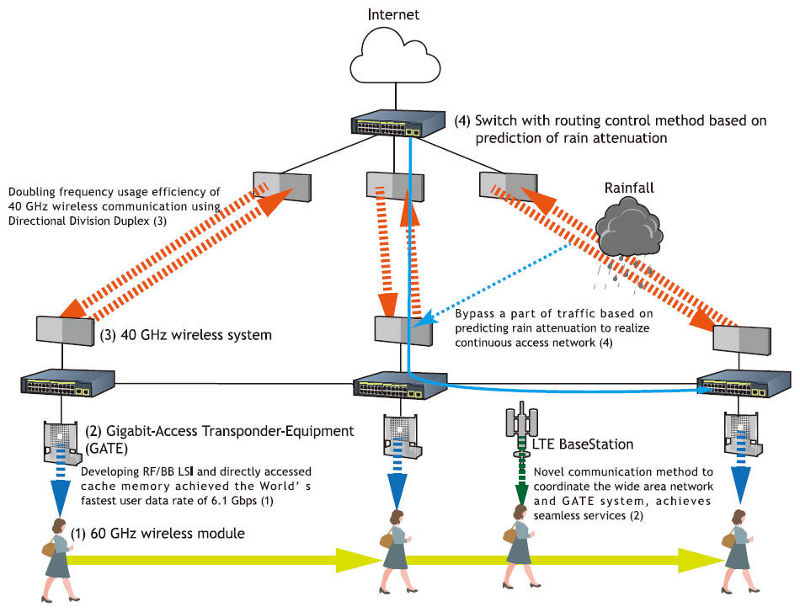
Sony has announced that it has partnered with Tokyo Tech, Japan Radio and KDDI Labs to jointly develop and implement 40 GHz and 60 GHz wave-based high-throughput wireless access network that combines 40 GHz operation for outdoor networks with 60 GHz operation for mobiles to enable large data size content delivery on the gigabyte scale.
“This system provides a way to introduce a high-throughput communication service to next-generation networks using millimeter wave (mmWave)-based wireless systems and also enables efficient use of the mmWave communication band, which is much less crowded than the wavebands below 6 GHz,” said the company.

Sony and Tokyo Tech have developed 60 GHz wireless module with high frequency usage efficiency at a data rate of 6.57 Gbps in the PHY layer that uses a 2.16 GHz bandwidth, based on the use of a 6 dBi slab-waveguide antenna, a 65 nm CMOS 60 GHz direct-conversion radio-frequency (RF) LSI and analog circuit with 40 nm CMOS process that includes a 2.3 G Sample/s 7-bit analog-to-digital converter, and a 40 nm CMOS baseband (BB) LSI that incorporates a media-access control (MAC) layer and PHY layer that uses the above analog circuit and rate-compatible low-density parity-check (LDPC) codes.
A 60 GHz wireless transfer system using the developed wireless module and file transfer system demonstrated the world’s fastest user data rate of 6.1 Gbps (which can transfer a 1 GB file in 1.3 s). The system enables users to receive large quantities of data in moments, without the low data throughput limitations of current commercial mobile devices.
In the 40 GHz band wireless access system, the directional division duplex (DDD) system is adopted to perform simultaneous two-way communication on the same frequency and the same polarized wave, rather than the conventional frequency division duplex (FDD) or time division duplex (TDD) methods; DDD doubled the frequency utilization efficiency in principle.
These partners will demonstrate the wireless date transfer tech through open experiments at the Mobile Communication Workshop held at Tokyo Tech from March 2nd till 4th, 2016.
